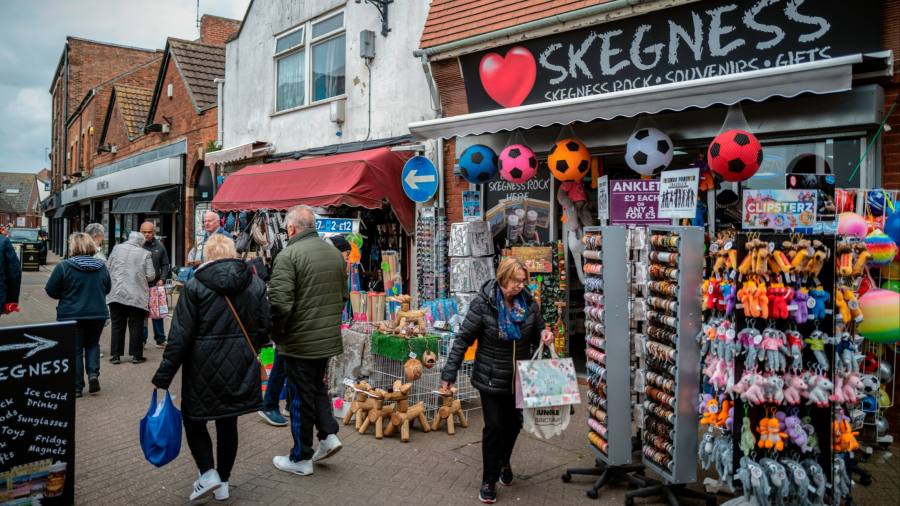
Hope can be hard to find on the seafront in Skegness, where the flatlands of Lincolnshire shelve imperceptibly into the grey North Sea, and an economic pall and a sense of broken promises hang over the town.
In Britain’s “capital of Brexit”, the issue of migration continues to dominate, seven years after the town voted to “take back control” of the country’s borders. Meanwhile the impact of the cost of living crisis is everywhere.
Skegness and nearby Boston are the only places in Britain, according to one opinion poll, that still think Brexit is a good idea, but support has fallen sharply and a sense of disillusionment about politics in general is rife ahead of local elections on May 4.
“I voted for Boris Johnson because I wanted Brexit — but the Tories won’t get my vote any more,” said Chris Hughes, a retired lorry driver, over a coffee in the Indulgence café in Skegness high street.
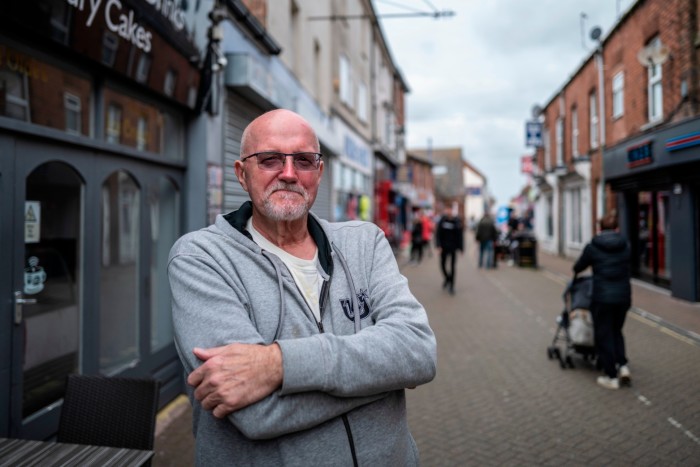
Hughes wants a “clean sweep” at Westminster, but admitted he did not much like the alternative: Labour leader Sir Keir Starmer. Indeed, along the Lincolnshire coast, the mood is not one of anger but of resignation. The common refrain about politicians is: “They are all the same.”
Labour strategists have identified the problem ahead of the local elections taking place across much of England next week. “One of the big obstacles is that voters have so little hope that they see no point in voting or switching,” said one ally of Starmer.
It is not hard to identify the symptoms of this malaise in an area struggling with rising living costs. In the Indulgence café, run by local independent councillor Danny Brookes, hot breakfasts are off the menu after energy bills soared from £1,500 a month to almost £4,000.
Brexit seemed to offer a route to a better future, but Brookes feels let down. “There was no oven-ready deal,” said the leader of the Skegness Urban District Society, a group of independent councillors that will next week seek to wrestle control of East Lindsey district council, which covers Skegness, from the Conservatives.
“What about the £350mn a week for the NHS? The NHS is struggling more than ever. I was massively in favour of Brexit, but the promises made weren’t delivered.”
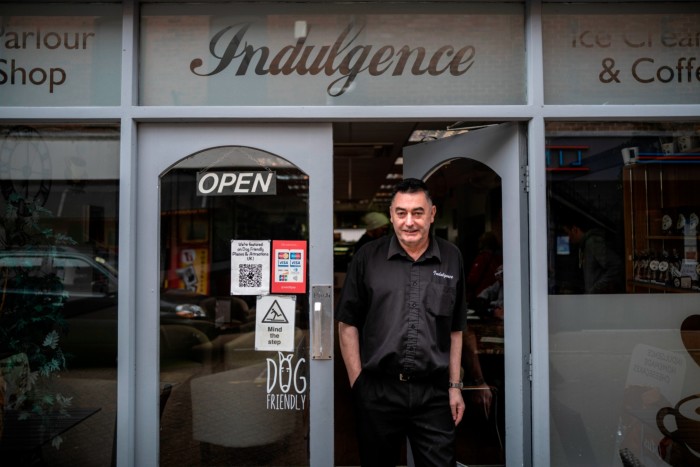
Down the road in Boston, where a record 75.6 per cent of people voted to leave the EU in 2016, people still talk about the Tory-led council’s decision to save money by scrapping the town’s Christmas lights and erecting an eight foot plastic tree instead.
A poll for the UnHerd website in January found that people in Boston and Skegness constituency — the second safest Conservative seat in Britain at the 2019 general election — still marginally agreed by 41 to 37 per cent that Brexit was a good idea. But one local Tory said: “That’s only because Brexit support was so high in the first place — it’s falling off a cliff now.”
The owner of a Skegness shop selling seaside rock and “kiss me quick” hats, who declined to give her name, said: “I voted to come out but it’s a disappointment. I would vote to go back in.”
Few voters mention Brexit spontaneously on the doorstep, but the failure of the UK’s departure from the EU to transform the fortunes of the area and its public services feeds into an air of disillusionment.
The area’s high Brexit vote in 2016 was attributed to local disquiet about an influx of EU workers to help on the area’s prosperous arable farms, but now anxiety about one sort of migration has been replaced by another.
Four local hotels in prime locations on Skegness’s seafront have been turned into accommodation for asylum seekers, part of a £6mn-a-day government programme to disperse migrants across the country.
Sunak has pledged to end the expensive arrangements and wants to turn a former military air base in Lincolnshire called RAF Scampton — used for the famous Dambusters raid — into alternative accommodation, but about 200 asylum seekers are set to stay in Skegness for the foreseeable future.
Beverley Gowler, working in a sweet shop in Skegness’s Hildreds shopping centre, said: “It’s putting people off coming to the town. It’s taking up hotel rooms and there’s nowhere for people to stay.”
Sunak understands the political risks, with polling suggesting that migration is the third most important issue for voters, behind the economy and the NHS.
The prime minister this week pushed legislation through the House of Commons that is intended to tackle illegal migration — notably people trying to reach Britain by crossing the English Channel in small boats. Tory advertising for the local elections focuses heavily on Sunak’s promise to “stop the boats”.
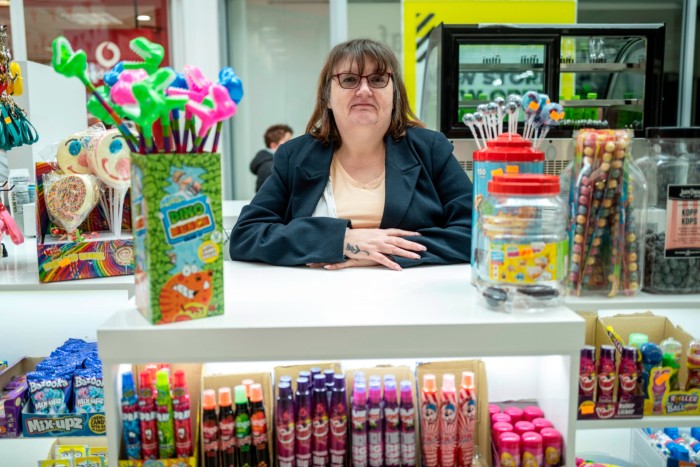
Council leaders were given minimal notice by the Home Office that asylum seekers were on their way to Skegness and the issue is the first thing local people mention, when asked what issues concern them.
Brookes said the “government is outbidding tourists” by buying up rooms in seafront hotels. Others noted that while they cannot get appointments to see their GP or have treatment at the local hospital, migrants arriving in the town had to be medically screened.
Labour admits that Starmer needs a message of hope to capitalise on the sense of national disgruntlement, but in the Boston and Skegness constituency the party is nowhere.
“There’s no love for Keir Starmer,” said Matt Warman, the pro-Remain Tory MP for Boston and Skegness. But he admitted that all politicians had a problem: “The challenge is get people excited.”
Independent candidates form the biggest threat to the Conservatives on both East Lindsey and Boston councils in next week’s local elections.
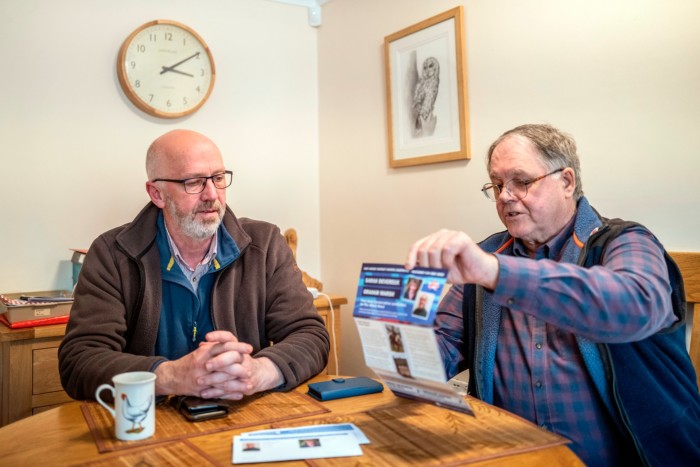
But Craig Leyland and Graham Marsh, Conservative leader and deputy leader respectively of East Lindsey council, highlighted the millions of pounds from central government pots such as the levelling up fund going into Skegness and the surrounding area.
Skegness Pier, which promises a “New York High Line” style linear garden in the near future, offers a sign of plans to update the image of a resort that boasts 30,000 caravans, supposedly the highest concentration in Europe.
Leyland and Marsh said Sunak had secured the stability to give the Tories a fair hearing on the doorstep and that voters appreciated the investment going into the area. They are confident the Conservatives will retain control of the council.
But the challenge for politicians of all parties — both in the local polls next week and in a general election expected next year — is to fashion a message of hope to raise a national mood that is flatter that the Lincolnshire fens.